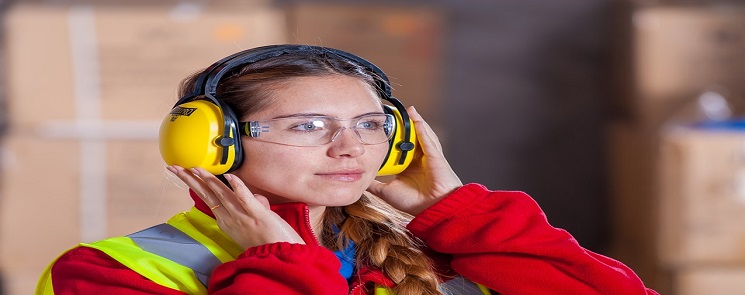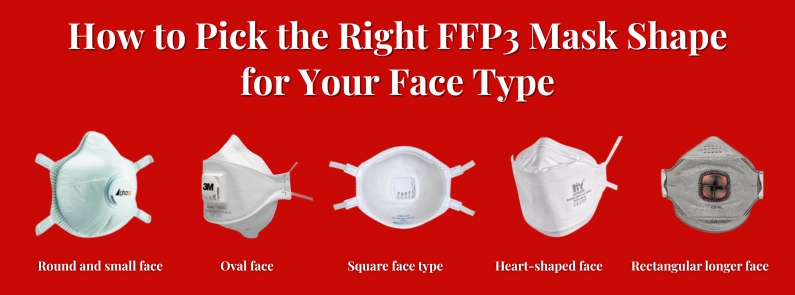
Excess exposure to noise is one of the most common causes of the hearing loss in factory workers. Thousands of workers whose job involves loud machinery suffer from tinnitus or hearing loss due to excess workplace noise levels. To prevent hearing loss while employers should implement some sort of administrative controls at workplaces, employees also need to follow some effective noise protection tips.
Health Effects of Occupational Noise Exposure:
While short-term exposure to loud noises may lead to temporary change in hearing, prolonged or repeated exposure to loud sound can cause hearing loss or tinnitus. As per OSHA reports, loud noises in the workplace can also cause fatigue, high blood pressure, anxiety, stress and reduced productivity. If workers are exposed to sounds over 85 decibels for an 8 hours shift, they are likely to develop hearing loss with time.
Tips for Workers to Ensure Maximum Noise Protection:
Follow these noise protection tips from hearing specialist to prevent hearing loss:
Wear Proper Noise Cancellation Devices:
When workers are exposed to a sound level above 85 decibels for long hours, they must put on hearing protection devices like Earmuff, Canal cap or Reusable Earplugs to protect ears against loud noises. Typically coming with an NRR (Noise Reduction Rating) of between 20 and 30 decibels, a good noise cancellation device reduces the sound to protect your hearing from noise hazards. The modern hearing protection equipment is comfortable to wear and give adequate protection to the ears against intense sound.
Don’t use Cotton Swabs to Cancel Noise
It is important for workers to wear safe noise cancellation device that does not go too far into the ear canal. Putting cotton swabs or sticks to ear canal not only can irritate the ears but they also may damage hearing by rupturing the eardrums. When it comes to protecting ears against excess noise exposure, using high-quality personal protective mask, equipment or PPE kit is the best step in prevention.
Avoid Loud Environment when Possible
Avoid working in loud environments may not always be possible for workers, but outside the workplace, they should avoid being in noisy areas, at least during break or lunchtime. If experiencing any problem with hearing, they are advised to consult good ear specialists as soon as possible to get it checked.
Quit Smoking and keep a Check on Blood Sugar
Prolonged cigarettes smoking can cause hearing loss. As per a recent study, smokers are 70% more likely to suffer some sort of hearing loss than the non-smokers Cigarettes contain substances like nicotine, which is responsible to irritate the lining .
If the middle ear and damages the cells of your body including those inside the inner ear canal. If you have high blood sugar, get it checked regularly because high glucose level in the blood may lead to some sort of hearing loss with time. If you are a smoker or diabetic who work with loud machinery or in high noise environments, do not forget to take doctor’s advice regularly to prevent permanent hearing loss.
What Should Employers do to Protect Workers Against Noise Hazards?
Let us have a look at some of the most effective ways that employers should consider to prevent hearing loss in workers.
Evaluate the Work Environment
Before taking any step to reduce noise exposure for workers, first, the employers need to identify the potential noise sources and work areas that have intermittent noise levels. To identify if your program is abiding by the OSHA hearing protection guidelines, you can consider seeking help from an expert who can conduct a survey of the work environment.
Using Administrative and Engineering Controls
To ensure that workers are not exposed to sound above 85 decibels during an 8-hour shift, some sort of engineering and administrative controls should be implemented. While the engineering controls include constructing barriers between employees and the noise source, replacing loud machinery with low-noise equipments, etc., the administrative controls refers to creating quiet areas for employees, limiting the time a worker spends near a loud noise source etc.
Organizing Audiometric evaluation
Conducting regular Audiometric testing by medical experts plays an important role to monitor workers’ hearing over time. Besides, informing workers about potential causes of hearing loss at workplace and precautions to protect them, it educates them about the usage of hearing protection ppe to avoid permanent hearing loss.
Last but not the least, more and more training or hearing conservation programs should be conducted at workplaces to let employees know about the adverse effect of excessive noise exposure and motivate them to take necessary precautions to avoid any sort of hearing loss.


